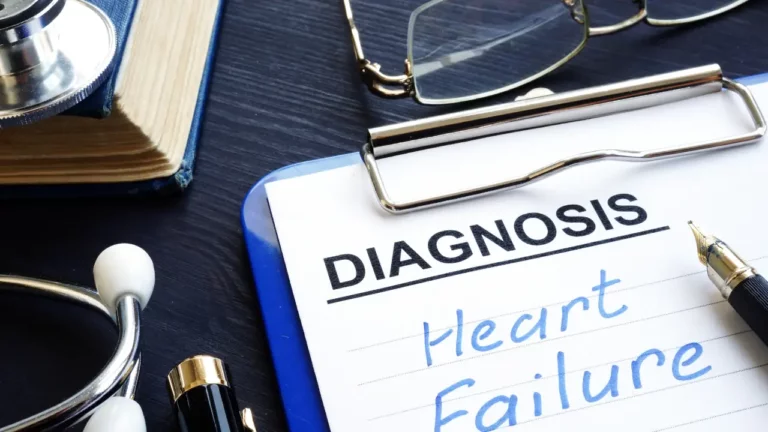Remote Therapeutic Monitoring (RTM) services and Remote Patient Monitoring (RPM) have become pivotal components in modern healthcare, enhancing patient care through technology. Understanding who qualifies for RTM services is crucial for both patients and providers to ensure optimal utilization and compliance with healthcare regulations. In this comprehensive guide, we delve into the patient and provider eligibility criteria for RTM services, ensuring you have all the information needed to navigate this essential aspect of healthcare delivery.
Patient Eligibility Criteria for RTM Services
To qualify for RTM services, patients must meet specific criteria that justify the necessity of remote monitoring. These criteria ensure that RTM services are utilized by those who truly need them, optimizing healthcare resources and improving patient outcomes.
Chronic and acute conditions
Patients suffering from chronic or acute conditions that require continuous monitoring are prime candidates for RTM services. These conditions necessitate regular tracking of symptoms and health metrics to prevent complications and manage the disease effectively.
Commonly Monitored Conditions
- Chronic Obstructive Pulmonary Disease (COPD)
- Continuous monitoring of respiratory functions
- Tracking of symptoms such as shortness of breath and chronic cough
- Asthma
- Regular monitoring of peak flow and symptom frequency
- Assessment of medication adherence and effectiveness
- Diabetes
- Ongoing tracking of blood glucose levels
- Monitoring of diet, exercise, and insulin usage
- Hypertension
- Continuous blood pressure monitoring
- Evaluation of medication effectiveness and lifestyle factors
- Musculoskeletal Disorders
- Monitoring of pain levels and mobility
- Tracking physical therapy progress and adherence
By focusing on these conditions, RTM services can significantly enhance disease management, reduce the risk of complications, and improve overall patient outcomes.
Technology Access and Literacy
Patients must have access to the necessary technology to participate in RTM services. This includes devices such as smartphones, tablets, or specialized medical equipment capable of transmitting health data. Moreover, patients should possess basic digital literacy to use these devices effectively. Providers often offer training sessions to ensure patients can navigate the technology required for RTM.
Consent and Willingness
Patient consent is a legal requirement for RTM services. Patients must be informed about the nature of RTM, the type of data being collected, and how it will be used. They must willingly agree to participate in the monitoring program. This consent process includes ensuring patients understand the privacy and security measures in place to protect their health data.
Medical Necessity
A key eligibility criterion is the medical necessity of RTM services. Healthcare providers must document the medical need for remote monitoring, demonstrating that it is essential for managing the patient’s condition. This involves a thorough assessment of the patient’s health status and the potential benefits of RTM in their specific case.
Provider Eligibility Criteria for RTM Services
Healthcare providers must also meet certain criteria to offer RTM services. These criteria ensure that providers are qualified and equipped to deliver high-quality remote monitoring to their patients.
Licensure and certification
Providers offering RTM services must hold appropriate medical licensure and certifications. This ensures they are legally authorized to provide healthcare services and have the necessary expertise to manage RTM programs. In some cases, additional certifications specific to remote monitoring may be required.
Technological infrastructure
Providers need a robust technological infrastructure to support RTM services. This includes secure data transmission systems, electronic health records (EHR) integration, and reliable communication channels. Providers must ensure their systems comply with HIPAA regulations to protect patient privacy and data security.
Training and expertise
Healthcare providers must be trained in the use of RTM technologies and the interpretation of remotely collected health data. Continuous education and training programs help providers stay updated with the latest advancements in RTM, ensuring they can offer the best possible care to their patients.
Documentation and compliance
Proper documentation is crucial for providers to demonstrate compliance with RTM regulations. This includes maintaining detailed records of patient consent, data transmissions, and clinical decisions based on RTM data. Compliance with Medicare and other insurance requirements is essential for reimbursement and audit purposes.
RTM Codes and Reimbursement
The Centers for Medicare & Medicaid Services recognized the effectiveness of remote therapeutic monitoring (RTM) by introducing new CPT codes. These codes allow for reimbursement of remote care for respiratory and musculoskeletal (MSK) conditions when delivered through a digital care management platform that is FDA-approved as software as a medical device (SaMD).
Understanding RTM codes is vital for providers to ensure they are reimbursed correctly for their services. CPT codes specific to RTM cover various aspects of remote monitoring, from initial setup to ongoing data review.
CPT Code 98975
This code covers the initial setup and patient education on the use of RTM devices. It includes the time spent setting up the equipment and training the patient, ensuring they can effectively participate in the monitoring program.
CPT Code 98976 and 98977
These codes apply to the supply of the RTM devices and the ongoing data transmission. Code 98976 is used for respiratory system monitoring, while 98977 is used for musculoskeletal system monitoring. These codes cover the cost of the devices and the continuous collection and transmission of data.
CPT Code 98980 and 98981
These codes are for the clinical review and management of RTM data. Code 98980 covers the initial 20 minutes of review, interpretation, and patient interaction, while 98981 covers additional increments of 20 minutes. These codes ensure providers are compensated for the time spent analyzing data and making clinical decisions.
Advantages of RTM Services
RTM services offer numerous benefits, both for patients and providers. By enabling continuous monitoring, RTM can lead to early detection of potential health issues, allowing for prompt intervention. This proactive approach helps reduce hospital admissions and improve patient outcomes. For providers, RTM enhances the ability to manage chronic conditions effectively, leading to better patient satisfaction and adherence to treatment plans.
Improved patient engagement
RTM services foster better patient engagement by encouraging patients to take an active role in their health management. The use of technology makes it easier for patients to track their health metrics and communicate with their healthcare providers, leading to more informed and engaged patients.
Cost-effective care
By reducing the need for frequent in-person visits, RTM services can significantly lower healthcare costs. This cost-effectiveness benefits both patients and healthcare systems, making quality care more accessible and affordable.
Eligibility Criteria for RTM Services and the DrKumo RPM Solution
DrKumo’s Remote Patient Monitoring (RPM) solution aligns seamlessly with the eligibility criteria for Remote Therapeutic Monitoring (RTM) services, making it an optimal choice for healthcare providers and patients alike. Understanding the specific requirements for RTM services and how DrKumo’s RPM technology meets these needs is crucial for effective healthcare delivery.
Patient-centric technology
DrKumo’s RPM solution is designed to cater to patients with chronic and acute conditions, such as diabetes, hypertension, COPD, and musculoskeletal disorders. The platform supports continuous monitoring through user-friendly devices that patients can easily integrate into their daily lives. The technology ensures that patients who meet the eligibility criteria for RTM services can seamlessly transition into remote monitoring without any technical hurdles.
Advanced data security and compliance
Meeting the eligibility criteria for RTM services involves strict adherence to data security and patient privacy regulations. DrKumo’s RPM solution complies with HIPAA regulations, ensuring that all patient data is securely transmitted and stored. This compliance not only meets but exceeds the standards required for RTM services, providing peace of mind for both patients and providers.
Comprehensive provider support
For healthcare providers, DrKumo offers robust support and training to ensure seamless implementation and use of RPM technology. Providers must be licensed and trained to manage RTM services effectively, and DrKumo facilitates this through continuous education and technical support. The platform’s integration with electronic health records (EHR) and secure data transmission systems ensures that providers can maintain accurate documentation and compliance with all RTM requirements.
Enhanced patient engagement and outcomes
DrKumo’s technology fosters improved patient engagement by making health monitoring accessible and straightforward. Patients who qualify for RTM services benefit from the real-time data and continuous communication with their healthcare providers. This engagement leads to better health outcomes, as patients are more likely to adhere to their treatment plans and actively participate in their healthcare.
Takeaways
Eligibility for RTM services hinges on meeting specific patient and provider criteria. For patients, the focus is on the necessity of continuous monitoring, access to technology, and informed consent. For providers, the emphasis is on licensure, technological infrastructure, training, and compliance. Bottom line? Understanding and adhering to these criteria ensures that RTM services are delivered effectively, benefiting both patients and healthcare providers.
Discover how DrKumo’s advanced RPM solution can help you meet these eligibility criteria effortlessly. With our cutting-edge technology and comprehensive support, you can enhance patient care and streamline your remote monitoring processes. Contact us today to learn more and get started with the best in Remote Patient Monitoring.
Disclaimer: The information provided in this article is for educational purposes only and should not be considered as medical or legal advice. Consult with a healthcare professional or legal advisor for specific guidance regarding RTM services.








